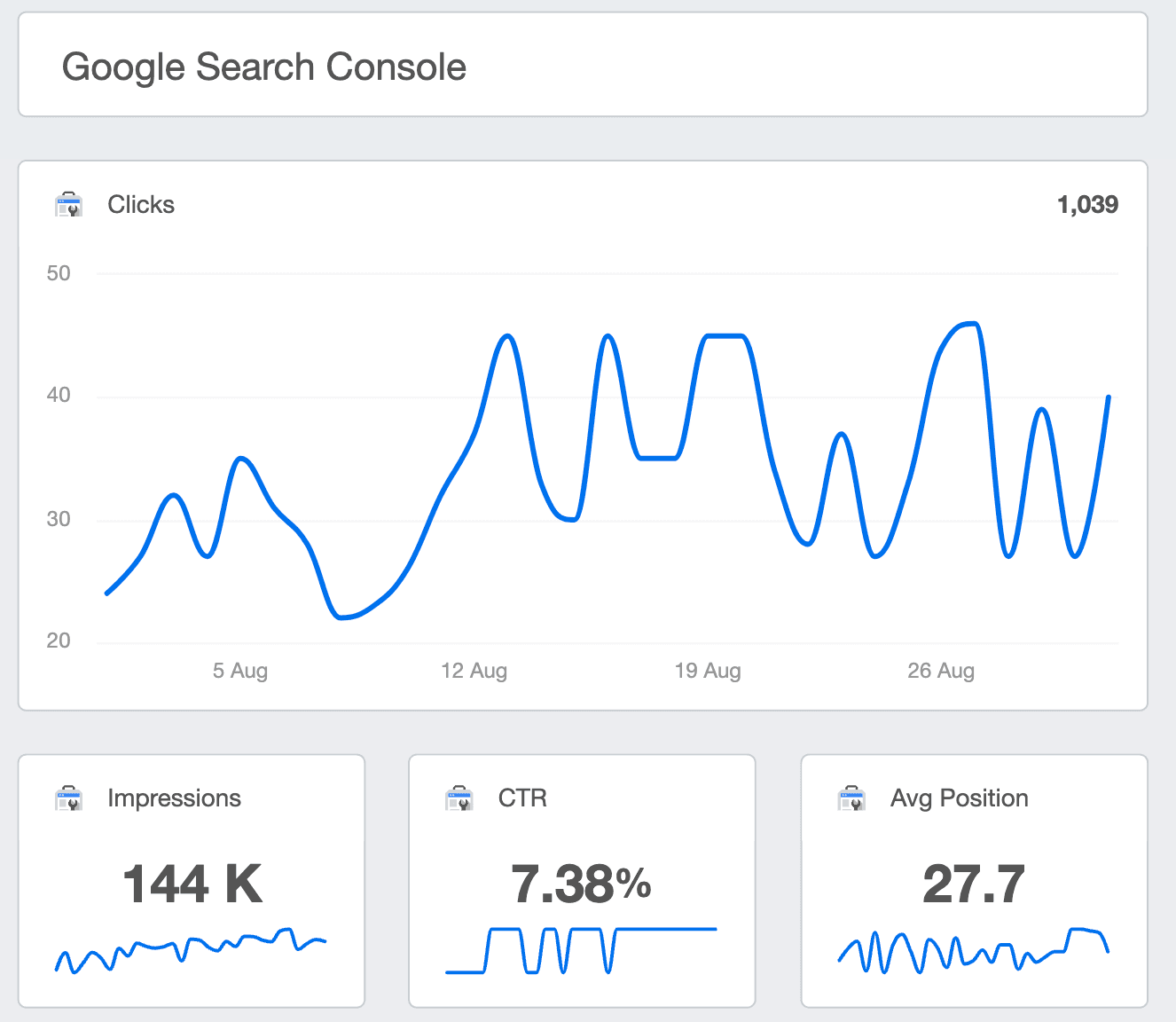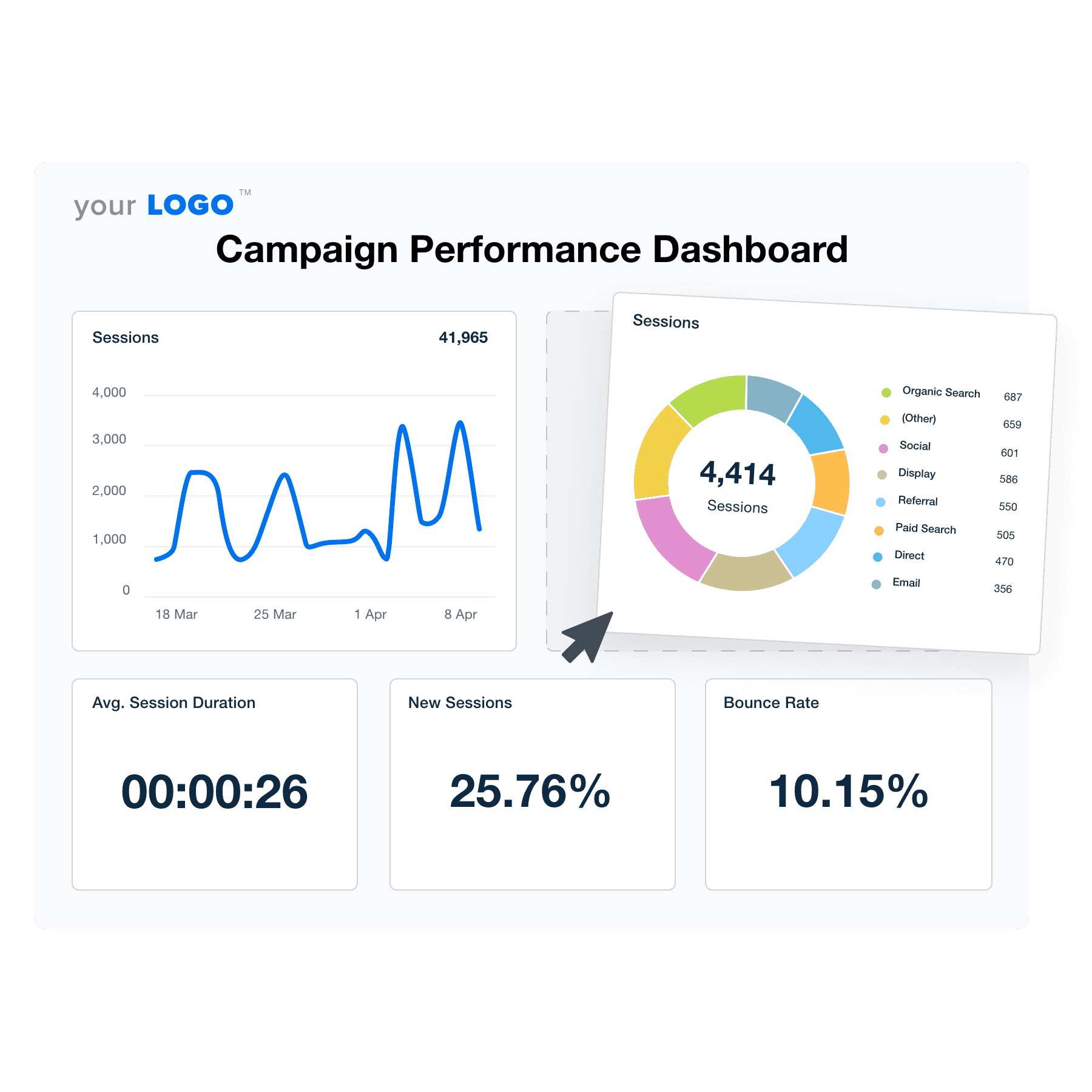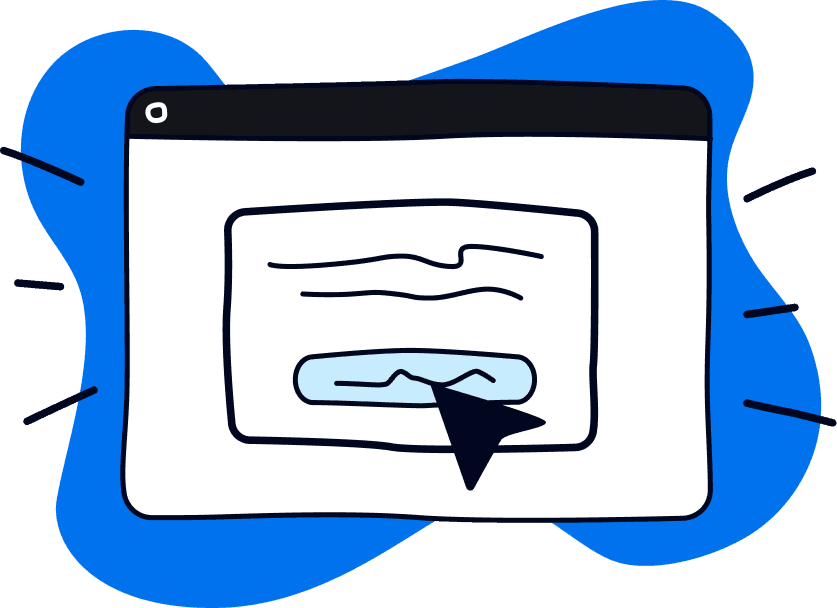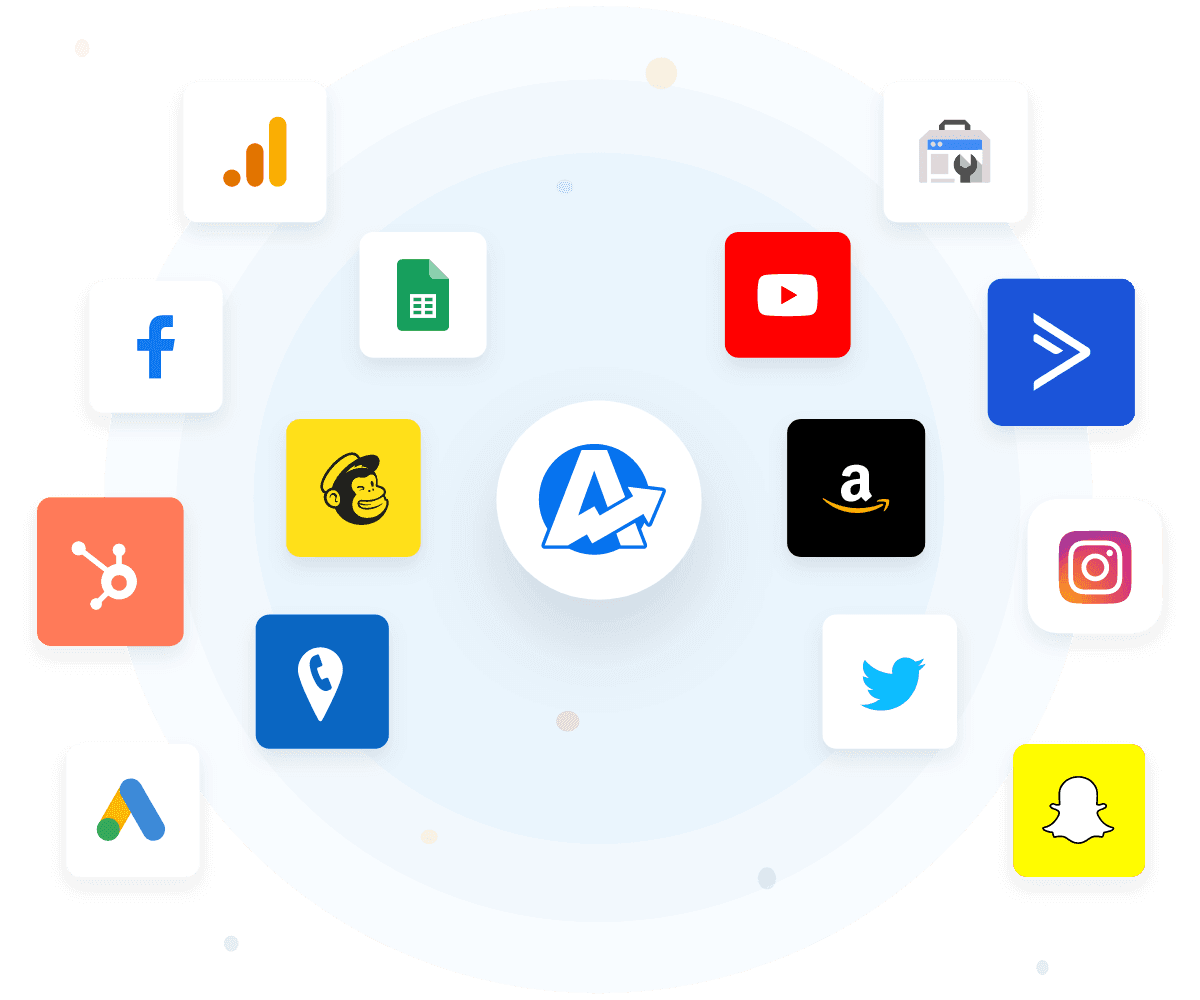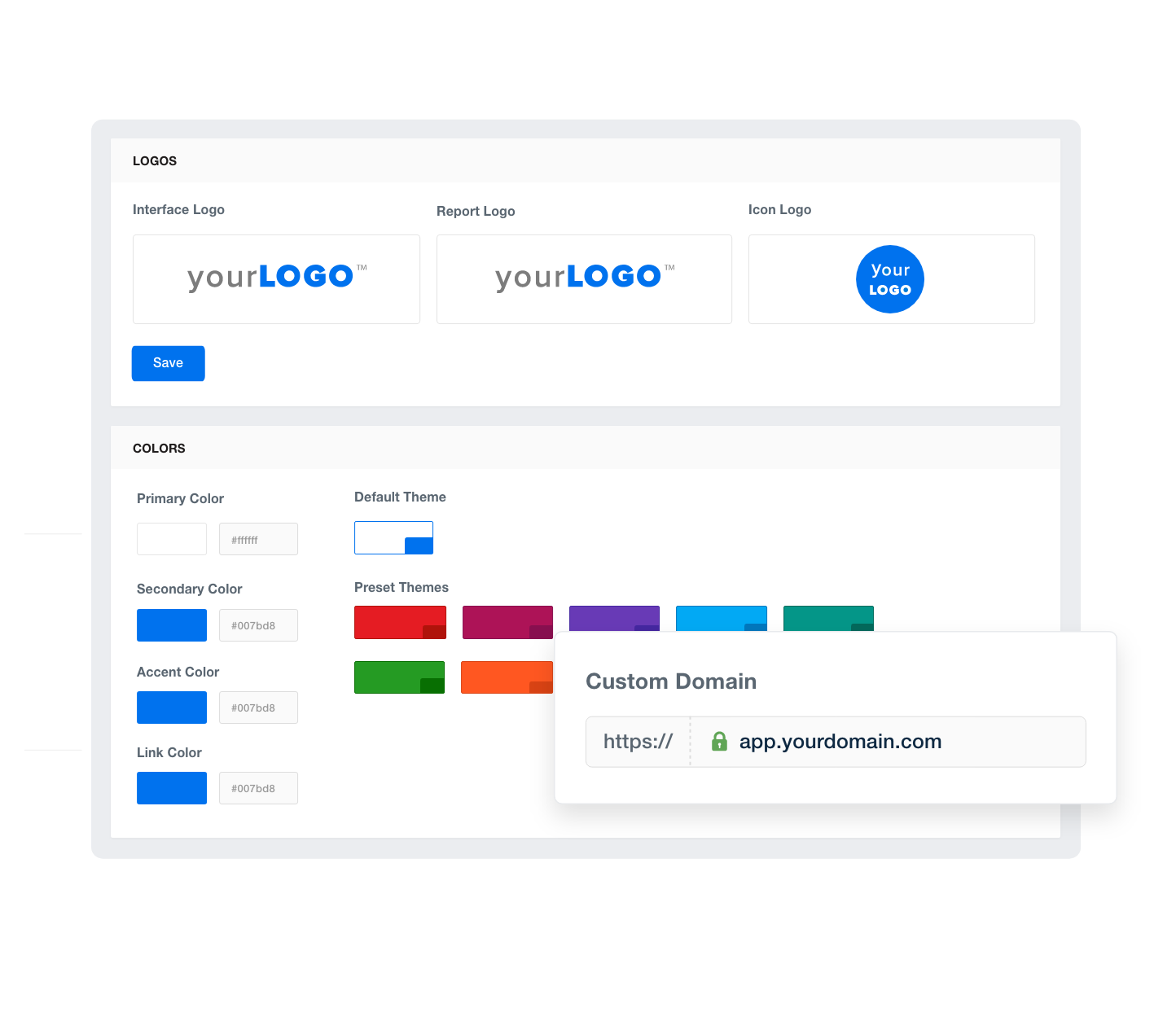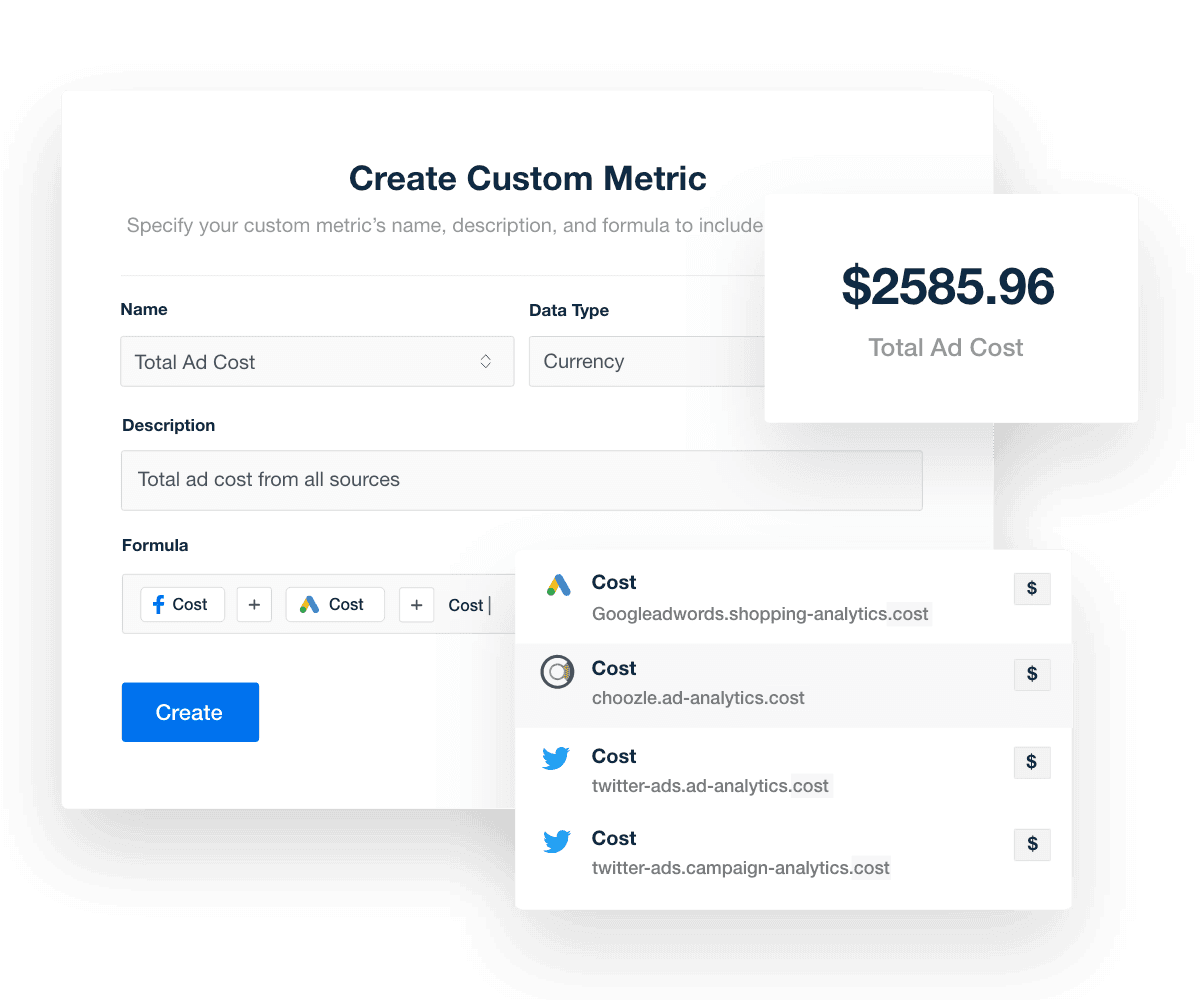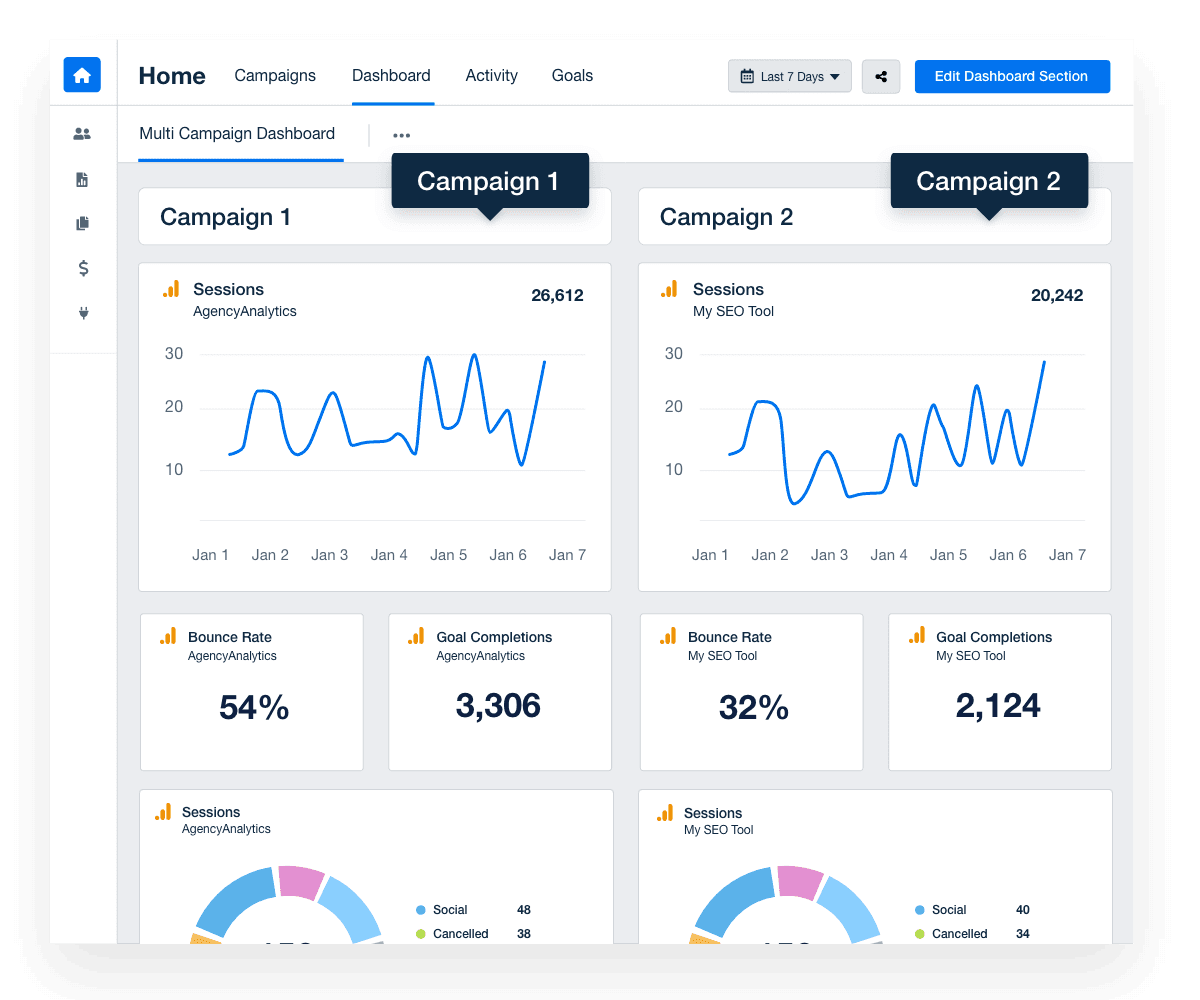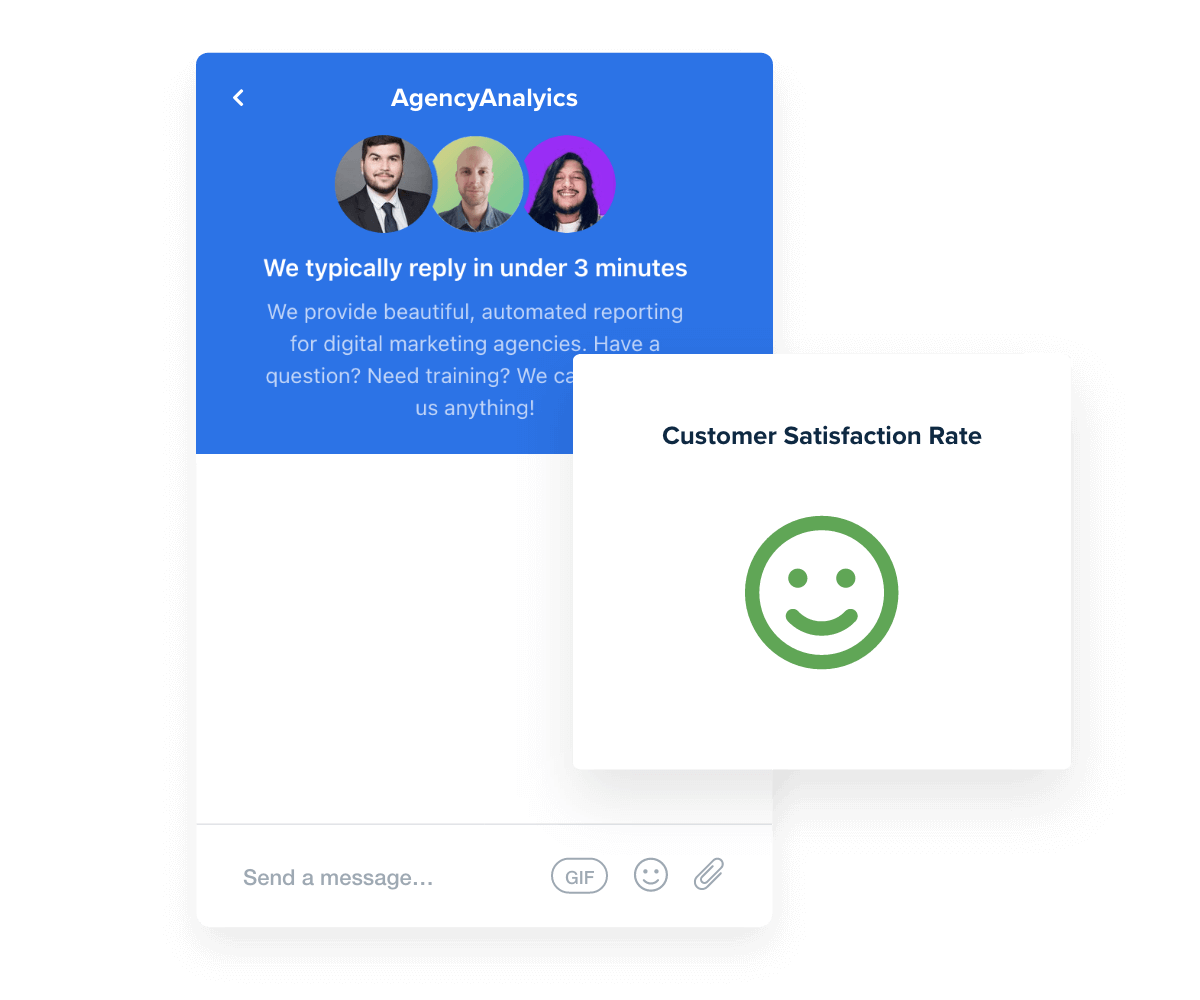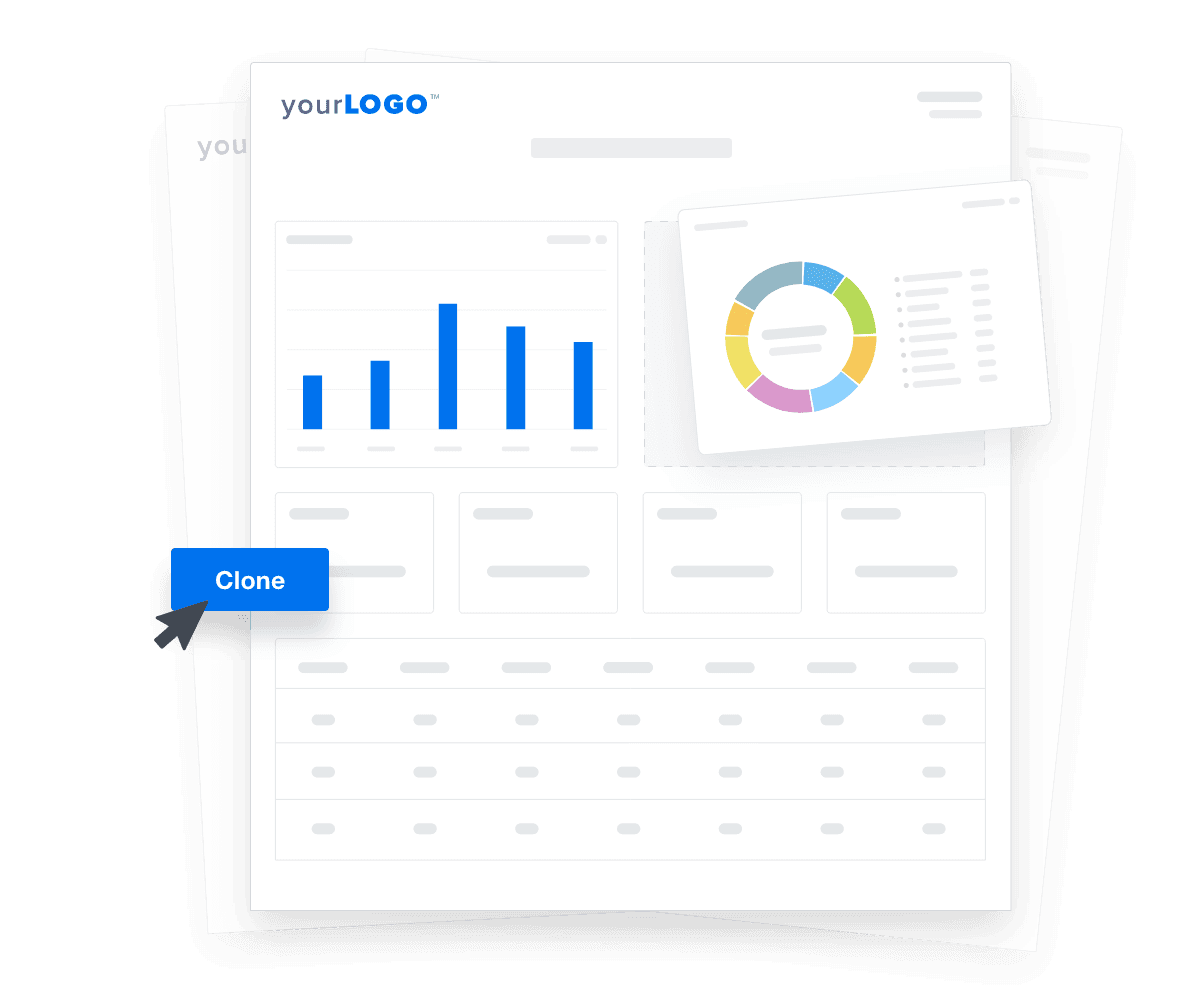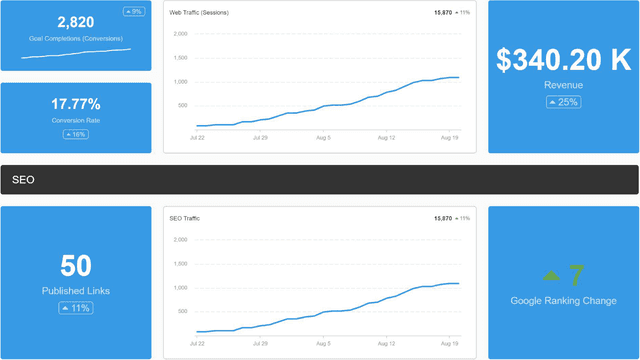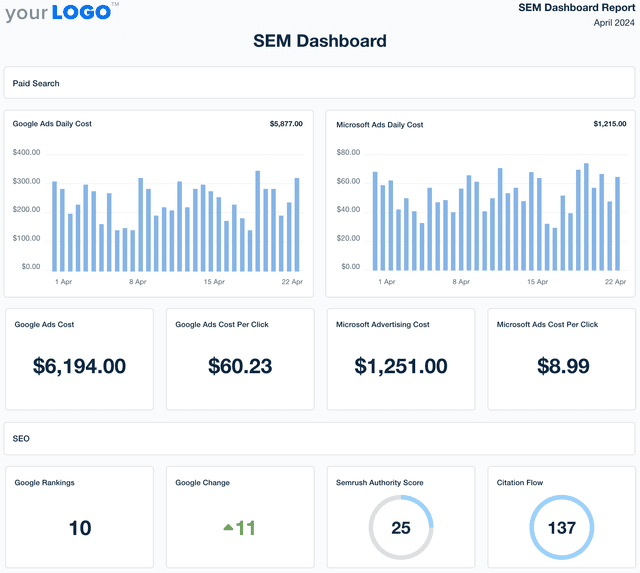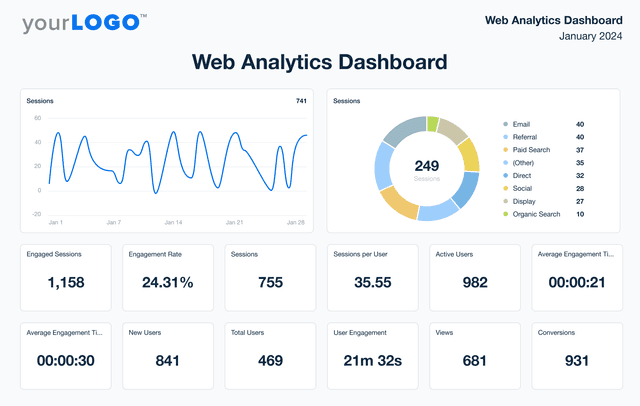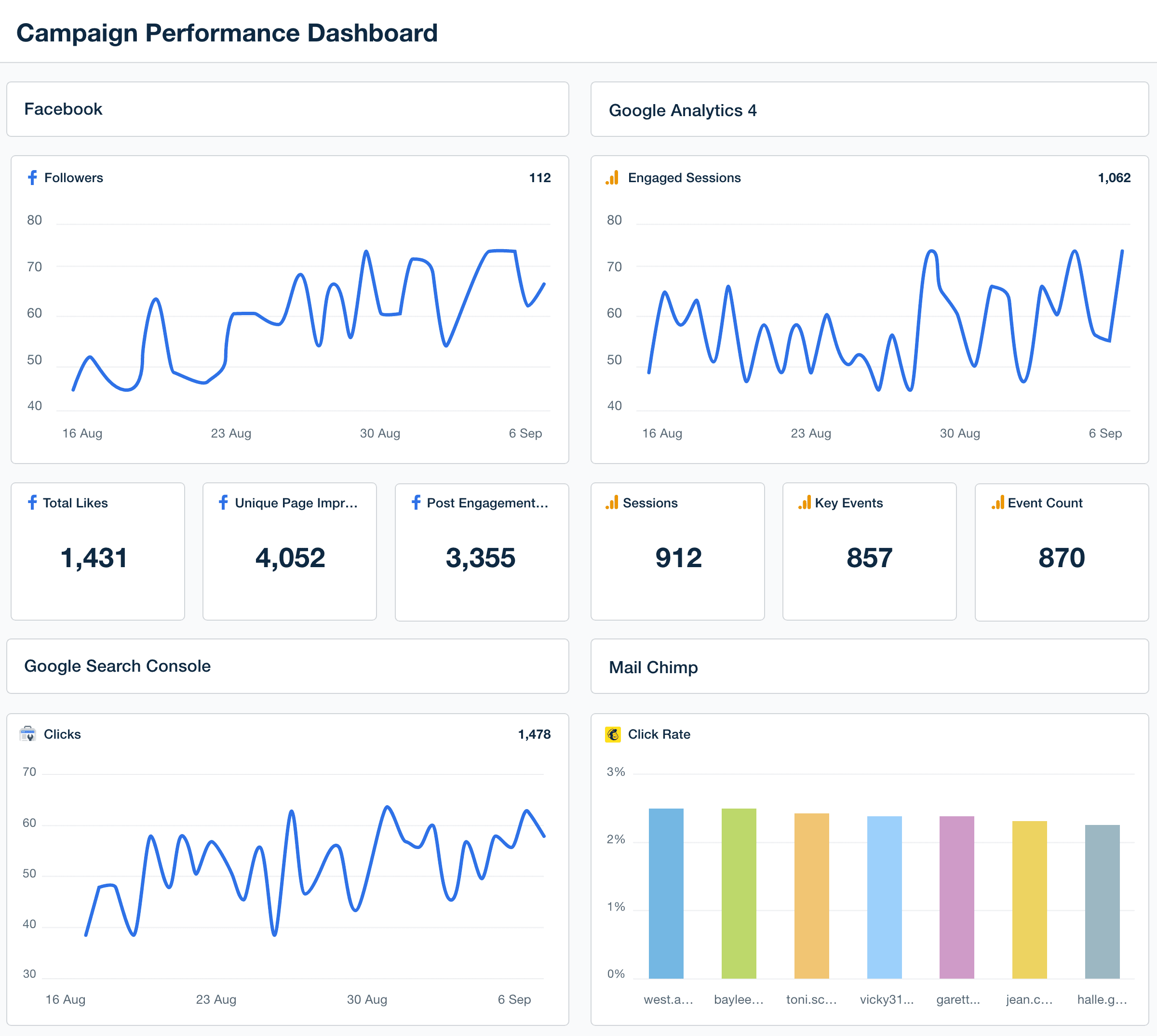
Campaign Performance Dashboard for Live Data and Client Reporting

Customizable Campaign Performance Dashboard for Smarter Insights
Create a white-labeled campaign performance dashboard that centralizes marketing data across SEO, PPC, social media, and web analytics. Customize widgets, white label the dashboards, and tailor data visualizations to showcase the most relevant KPIs.
Keep campaigns on track with live data while giving clients clear, up-to-date insights. With automated reporting and flexible customization, agencies save time and focus on optimizing performance instead of compiling reports.
Campaign Performance Dashboards as Unique as Your Agency
Right At Your Fingertips
Instantly Access All Your Clients’ Campaign Performance Data
Manage multiple digital marketing campaigns without compromising service quality. AgencyAnalytics seamlessly integrates with 80+ marketing platforms, making it easy to deliver actionable insights that matter.
Access all your clients’ data in a single, unified hub. Analyze performance, identify optimization opportunities, and streamline the entire reporting process.
Insights & Metrics To Include in a Campaign Performance Dashboard
A well-structured campaign performance dashboard does more than display data. It’s designed to help clients quickly grasp key insights. Focus on key metrics (like the ones below) to provide clarity and make informed decisions.
